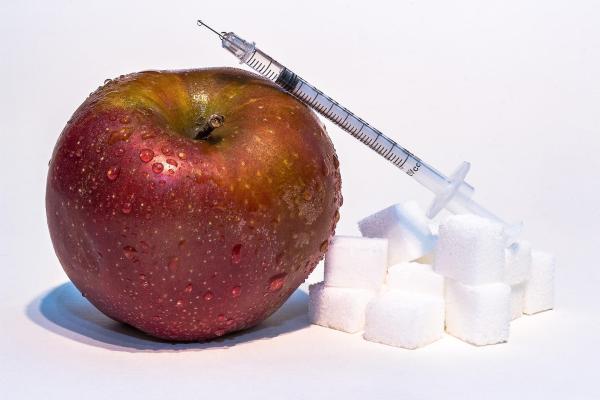The study involved three prospective cohorts, the Nurses’ Health study, I and II, and the Health Professionals Follow-up study, all containing genomic data and the relevant demographic and clinical information. Genome-wide polygenic scores, the genes associated with type II diabetes, from the UK’s Biobank. One difference in this study from others is that those polygenic scores were developed for three physiologic pathways for developing type II diabetes; impaired insulin excretion due to a failure of the beta cells or proinsulin synthesis, and insulin resistance.
Dietary information came from surveys completed at baseline and every four years. The quality of that diet is characterized by the Alternate Healthy Eating Index (AEHI) [1] and the Dietary Approaches to Stop Hypertension (DASH) diet. [2]
The study included roughly 36,000 participants with a baseline age of 53, although the Nurses’ Health Study II baseline was 37. Most are free of chronic disease, BMI 25 (neither fat nor thin), and a mean dietary quality right in the middle. Over about 900,000 person-years, approximately 4400 individuals developed type II diabetes.
- When fully adjusted, polygenic scores were associated with a higher risk of diabetes by 30%. The beta-cell dysfunction pathways were associated with a 22% risk, and “obesity-mediated” insulin resistance was associated with a 9% risk. While there may be many paths up the mountain, the paths are different.
- The risk of type II diabetes was 13% for a 10-point decrease in nutritional quality as measured by the AHEI score and a 5-point reduction in DASH score quality.
- When considering the interaction between genes and diet, the risk of diabetes was greater with a low-quality diet, 31%. But there was essentially no difference when stratified by genetic risk. This lack of enhanced risk when diet and genetics interact held for all three physiologic pathways and both dietary scales.
- Genetic risk contributed 53% of the risk of diabetes, diet 38%, the interaction of the two 8% when considering the entire cohort. When considering those physiologic pathways, those with a genetic risk of beta-cell dysfunction had a more significant genetic contribution to risk than those with a genetic risk of obesity-mediated diabetes (those insulin resistant). Dietary quality accounted for nearly 80% of the risk in that subgroup.
Once again, a lot to unpack. Looking at the aggregate data, our genes and diet appear to be independent of one another, confounders, fellow travelers, but not mediators of one another. (If that statement is puzzling, you can find a description of mediation analysis here.) For those with a genetic profile that increases their risk for insulin resistance, dietary quality might help mitigate the onset or severity of type II diabetes. For those with a beta cell dysfunction, diet’s role was no greater or lesser than that of your genes.
The causes of the onset of type II diabetes cannot be ascribed to one source, nor can it be, at least based on this study, ascribed to the interaction of diet and genetics. There remain many paths up the mountain; the pathway to type II diabetes from diet appears to be separate from genetics. We still cannot tailor preventative measures to individuals; the best advice in preventing type II diabetes remains a healthy diet and reasonable BMI; we still cannot alter our genes.
[1] “ 11 foods and nutrients, emphasizing higher intake of fruits, whole grains, vegetables (excluding potatoes), nuts and legumes, polyunsaturated fatty acids, and long-chain (n-3) fatty acids; moderate intake of alcohol; and lower intake of red and processed meats, sugar-sweetened drinks and fruit juice, sodium, and transfat.”
[2] "8 foods and nutrients. Each component was scored from 1 to 5 points … for higher intake of fruits, whole grains, vegetables, nuts and legumes, and low-fat dairy products and for lower intake of red and processed meats, sugar-sweetened drinks, and sodium."
Source: Polygenic scores, diet quality, and type 2 diabetes risk: An observational study among 35,759 adults from 3 US cohorts PLOS Medicine DOI: 10.1371/journal.pmed.1003972




